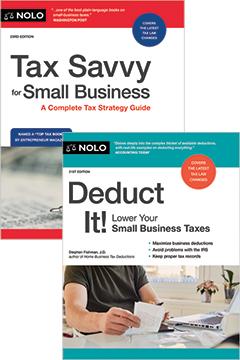Find out what help is available to keep your business afloat during the COVID-19 crisis--from SBA loans to other assistance.
The Coronavirus (COVID-19) outbreak has halted business across the country, and small businesses are struggling to make ends meet. It may be challenging to pay your bills and also keep paying your employees, while also figuring out how to provide for yourself. Fortunately, help is available to keep your business afloat, and new programs from the government and other organizations are on the horizon.
SBA Loans
Congress has added billions of dollars to the Small Business Administration's (SBA) Economic Injury Disaster Loans (EIDL) program to provide low-interest disaster loans to small businesses affected by the COVID-19 outbreak. The loan amount is up to $2 million per business and is available to businesses in the United States. The money may be used for working capital, which includes money needed to pay rent, utilities, and employees. The interest rate on these loans is 3.75% for small businesses and 2.75% for nonprofits payable over up to 30 years.
You may apply for the loan on the SBA website. The application requires detailed information about your business, including recent tax returns, all your assets and liabilities, and profit and loss statements. You must also demonstrate how COVID-19 affected your business. You can also add any additional information that demonstrates your economic loss.
There is also a loan program authorized by Congress to help businesses impacted by the COVID-19 crisis called the Paycheck Protection Program (PPP). These are two-year loans with a 0.5% interest rate and the loan is forgivable if you use it in the first eight weeks for certain specified business purposes like payroll, mortgage interest, rent, and utility payments.
The Consolidated Appropriations Act of 2021 provided additional funding for both programs, and you might be eligible for either as a new or second-time borrower. For more information, see SBA Loan Programs Offer COVID-19 Relief: Economic Injury Disaster Loan Program (EIDL) and the Paycheck Protection Program (PPP).
Nonprofit Organizations Offering Assistance
SCORE, a national nonprofit organization devoted to helping small businesses, offers many resources for entrepreneurs. One of the resources SCORE provides is connecting business owners with mentors. In light of the current situation, SCORE is now offering remote mentoring via video conferencing, phone, and email. A mentor may help you discover additional resources available to your business.
Many other nonprofit organizations across the country are stepping up to help small businesses. Check with your local chamber of commerce, Women's Business Centers, and Veteran's Business Centers to see what is available in your area.
Support for Export Businesses
If your business is involved in exporting goods to other countries, you may find relief from the Export-Import Bank of the United States (EXIM). For a number of their offerings, they are waiving program requirements and extending deadlines. This includes their Working Capital Guarantee Program, which allows you to borrow cash to pay for supplies to fulfill export orders.
The SBA also has loans for small businesses that export overseas. Both the Export Express program and the International Trade Loan program provide loans for capital. The Export Working Capital Program provides a revolving line of credit to allow you to fulfill export orders.
State Programs
States across the country are offering programs that provide lines of credit and low-interest loans to business owners. Other areas, like New York City, are awarding one-time grants to select businesses. Unlike a loan, a grant does not have to be paid back. Check with your local state and county business agencies to see what relief is available to you.
Assistance from Insurance
Your business insurance may be able to help out as well, assuming you had the policy in place before the outbreak. If you have commercial property insurance, it may compensate for losses incurred due to COVID-19. Reach out to your insurance adjuster to determine what your policy covers and what information you need to provide.
You may have some form of business interruption insurance, which is often included in a business indemnity insurance policy. This insurance provides compensation in case there is a disruption in business operations. Depending on the policy, the Coronavirus may or may not be a qualifying event for coverage. For instance, many business interruption policies require that there was direct and physical damage to your insured property. If you had a fire at your office, this would clearly apply. However, it is more difficult to demonstrate how the Coronavirus caused physical damage to property.
If instead your policy specifically lists an epidemic or a pandemic as a triggering event, it is more clear this would apply. Another triggering event may be actions from a civil authority or interruption to your supply chain. If you have such a policy and the government required your business to close to the public, or you cannot get the supplies you need for operation, you may have coverage.
Document Your Losses
If you want assistance, many programs offering help will ask you to document what losses you incurred as a result of the outbreak. Take time to calculate your business losses for your own records and so you will be able to demonstrate how much financial assistance you need. Your records should include:
- the length of time your business is closed
- your loss in profit, demonstrated by sales trends before and after the outbreak
- how many customers you have lost
- additional expenses, such as extra inventory on hand
- additional legal and accounting expenses incurred, and
- any expenses saved, such as payroll or decreased inventory needs.
To learn about how you can deduct business losses as part of the Coronavirus Aid, Relief, and Economic Security Act (CARES act), see Nolo's article, Deducting Business Losses Related to the Coronavirus Outbreak.



